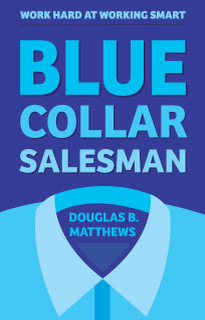Trash Talking in Sports
Trash Talking in Sports: The Fine Line Between Mental Warfare and Sportsmanship

Trash talking in sports is as old as competition itself. It’s the art of verbal sparring, where athletes use words to gain a psychological edge over their opponents. While sports are typically seen as physical battles, the mental side is just as crucial. Trash talkers understand this and use language to intimidate, distract, or simply amuse. But trash talking is more than just insulting someone; it’s a carefully crafted skill that can tip the scales in intense competitions. Its presence is felt in every arena, from basketball courts to boxing rings. However, while it can add excitement and fire to games, it can also lead to controversy and, at times, bad blood. This blog explores the history of trash talking in sports, its role in different sports, the pros and cons of this practice, and the fine line athletes walk when engaging in it.
The Origins and Evolution of Trash Talking in Sports
Trash talking in sports is not a modern phenomenon; it has deep historical roots. The act of taunting or goading opponents dates back to ancient times, especially in cultures where competitive games and warrior traditions flourished. In ancient Rome, gladiators and athletes participating in the Olympic Games were known for their verbal jabs, using them to unsettle their rivals before a match. Similarly, in medieval jousting, knights would often engage in verbal combat, throwing insults at each other to psyche themselves up and intimidate the opposition.
In the early 20th century, trash talking began to take shape in the world of modern professional sports. Boxing, in particular, became a significant platform for it. Legendary fighters like Jack Johnson and Muhammad Ali used trash talk as part of their pre-fight strategy. Johnson, the first African-American heavyweight champion, would engage in verbal warfare, infuriating his white opponents while delighting his fans. Ali, of course, elevated trash talking to an art form. He poetically taunted his opponents, claiming to be “The Greatest” and often predicting the round in which he would knock them out.
Basketball also became a home for trash talking, especially in the NBA. In the 1980s and 1990s, players like Larry Bird and Michael Jordan were masters of it, using verbal barbs to get into the heads of their rivals. The phenomenon grew with the rise of media coverage, allowing fans to witness the exchanges between players up close. Trash talking added a layer of drama to already heated rivalries, making sports more entertaining for spectators.
In today’s sports culture, trash talking has become more sophisticated and media-driven. Athletes often take to social media platforms to engage in verbal sparring, knowing that their comments will be seen by millions. The world of trash talk has evolved, but its core purpose remains the same: gaining a psychological advantage over an opponent.
Sports Where Trash Talking is Most Prevalent
While trash talking exists across all sports, some are more known for this practice than others. The nature of these sports—high stakes, physical intensity, and often one-on-one confrontations—makes them fertile grounds for verbal warfare.
Basketball
Basketball, particularly in the NBA, is one of the sports where trash talking is most prevalent. Due to the fast-paced, close-contact nature of the game, players often exchange words during breaks in play or even while on the move. Players like Larry Bird, Gary Payton, and Kevin Garnett were known for their sharp tongues. Garnett, for example, would constantly chirp at opponents, aiming to get under their skin. This mental warfare is often as important as the physical battle on the court, especially in crucial playoff moments.
Boxing and MMA
In combat sports like boxing and mixed martial arts (MMA), trash talking is almost expected. Fighters like Conor McGregor, Floyd Mayweather, and Muhammad Ali understood the importance of trash talk in building hype around a fight. Verbal barbs not only help sell pay-per-views but also give fighters a psychological edge. McGregor, for instance, is notorious for breaking his opponents mentally long before the fight begins. His quick wit, confidence, and bold predictions leave his rivals questioning their own abilities.
American Football
Trash talking is also prominent in American football, particularly in the NFL. The nature of the game, with its frequent stoppages and physical confrontations, lends itself to trash talk. Players like Deion Sanders and Richard Sherman have embraced the role of the vocal leader, constantly jawing at opponents to throw them off their game. Sherman, known for his fierce personality, famously taunted wide receiver Michael Crabtree after a game-clinching play in the 2013 NFC Championship, creating one of the most memorable post-game interviews in NFL history.
Soccer
While trash talking isn’t as celebrated in soccer as in other sports, it still plays a role, especially in heated rivalries. In high-pressure matches, like World Cup games or the El Clásico between Real Madrid and Barcelona, players have been known to exchange harsh words on the pitch. Diego Maradona and Zlatan Ibrahimović are two examples of soccer players who were known for their verbal antics, using it to unsettle their opponents and add a psychological element to the game.
The Pros and Cons of Trash Talking in Sports
Trash talking in sports has both its advantages and disadvantages. While it can serve as a mental strategy, it can also backfire if not used carefully.
The Pros
One of the primary benefits of trash talking is the psychological edge it can give a player. By getting into an opponent’s head, a trash talker can cause frustration, leading to mistakes. This is particularly effective in high-pressure situations where mental fortitude is just as important as physical skill. For example, Michael Jordan, known for his intense mental games, would often trash talk opponents to disrupt their concentration, causing them to miss crucial shots.
Trash talking also adds to the entertainment value of sports. Fans love to see athletes with personality, and trash talk can create iconic moments. Ali’s verbal jabs at his opponents were just as famous as his performances in the ring, making him a beloved figure. Similarly, trash talking can increase the intensity of a rivalry, making games or matches more exciting for spectators. Fans often view trash talkers as charismatic, outspoken, and confident, qualities that make sports personalities more marketable.
Another positive is that trash talk can motivate the player doing the talking. Athletes like Conor McGregor and Kevin Garnett used their words to pump themselves up, creating an aura of invincibility that gave them extra confidence. For some athletes, trash talking helps them get into the zone and boosts their own performance.
The Cons
On the flip side, trash talking can have negative consequences. It can escalate tensions, leading to fights or altercations. For example, in the NBA, trash talk can sometimes go too far, resulting in technical fouls, ejections, or even post-game brawls. In soccer, players have been known to lose their tempers after an opponent’s taunt, leading to bookings or red cards that can cost their team the match.
Additionally, trash talking can backfire if the opponent uses it as fuel. Athletes like Kobe Bryant and Tom Brady have been known to respond to trash talk with even better performances. Instead of unsettling them, it motivates them to play harder. For example, when trash talkers poke at athletes with a strong mental game, they often end up on the receiving end of a dominant performance.
There is also the issue of crossing the line. While playful banter is part of sports, some trash talkers have been criticized for going too far. Racial or personal insults can lead to backlash from fans, teams, or leagues. There is a fine line between engaging in mental warfare and disrespecting an opponent. Crossing that line can tarnish a player’s reputation and result in fines or suspensions.
Notorious Trash Talkers in Sports History
Over the years, some athletes have become famous for their trash-talking abilities. These players aren’t just skilled on the field or court—they are also masters of psychological warfare. Here are some of the most notorious trash talkers in sports history.
Muhammad Ali
No list of trash talkers would be complete without mentioning Muhammad Ali. The boxing legend was as famous for his words as he was for his fists. Ali’s trash talking was poetic, memorable, and often brutally effective. He famously declared, “I am the greatest,” and would mock his opponents with witty rhymes and bold predictions. His words would often demoralize opponents before they even stepped into the ring.
Larry Bird
Larry Bird, one of the greatest basketball players of all time, was also one of its best trash talkers. Bird’s confidence was unparalleled, and he would often tell his defenders exactly how he was going to score on them—and then do it. He once walked into the locker room before a three-point shooting contest and asked, “Who’s coming in second?” Bird’s mental toughness and sharp tongue were part of what made him a legend.
Gary Payton
Nicknamed “The Glove” for his defensive prowess, Gary Payton was notorious for his trash talk during his NBA career. Payton would constantly talk to his opponents, trying to break their focus and throw them off their game. He was relentless on the court, both physically and verbally, using every trick in the book to gain an advantage.
Conor McGregor
In the world of combat sports, Conor McGregor has taken trash talking to new heights. The UFC star is known for his quick wit, bold predictions, and relentless verbal assaults on his opponents. McGregor’s trash talk has helped him build a massive following and promote his fights. However, his verbal sparring isn’t just for show—McGregor believes in the psychological power of trash talking to unnerve his rivals.
Michael Jordan
Though Jordan’s talent speaks for itself, his trash-talking ability only added to his greatness. Known for his competitive nature, Jordan would often engage in verbal battles with his opponents. Whether it was telling them they couldn’t guard him or reminding them of his superiority, Jordan’s words were often as sharp as his skills. His trash talk wasn’t just about insulting others—it was about asserting his dominance.
Walking the Fine Line
One of the challenges with trash talking in sports is knowing where the line is. There’s a fine balance between playing mind games and crossing into disrespectful territory. While some athletes thrive on trash talking, they must be careful not to take it too far.
In general, playful banter and competitive jabs are acceptable in most sports. When athletes trash talk with humor or creativity, it often adds to their legend. For instance, Ali’s rhyming insults and Larry Bird’s confident predictions were celebrated because they were clever and entertaining. Trash talking, when done right, can be part of the fun and spectacle of sports.
However, when the language becomes personal, offensive, or malicious, it crosses into unacceptable behavior. Over the years, some players have faced criticism or disciplinary actions for crossing the line. Comments about family members, racial slurs, or disparaging an opponent’s physical condition are considered out of bounds. Athletes must be aware of this boundary and avoid going too far.
Moreover, leagues and organizations are increasingly vigilant about trash talk that crosses into offensive or inflammatory territory. As a result, fines and suspensions are handed out when players overstep the bounds of sportsmanship. In today’s world, where every word is scrutinized by the media and fans, athletes must be more careful than ever with their trash talk.
Conclusion
Trash talking in sports remains a compelling aspect of competitive play. For many athletes, it’s a weapon as effective as any physical skill, helping them gain a mental advantage over their opponents. It has a rich history, stretching back to ancient times, and is most prevalent in sports like basketball, boxing, and football. However, while trash talking can elevate the intensity and drama of sports, it comes with risks. When used improperly, it can backfire or cross ethical lines.
Athletes who engage in trash talking must walk a fine line between mental warfare and respect for their opponents. The most successful trash talkers, like Muhammad Ali and Larry Bird, understood this balance and used their words to enhance their games without stepping over the line.






